Sucess story Promo Fruit Benin Expands Regional Pineapple Juice Sales


Alladjodjo CEO of the Pineapple processing company, PROMO Fruit from Benin Republic. Credit: Epiphane Adjadji,PfD
In 2001, Mr. Dieudonne Aladjodjo, a pineapple farmer based in Allada, southern Benin where pineapple is grown, created the Promo Fruit Benin processing company to process Benin’s sweet Sugar Loaf pineapple into juice for local markets. He called the juice IRA, in recognition of his pineapple farmers’ association, Initiative to Promote Pineapple (Initiative pour la Relance de l’Ananas, IRA in French). Mr. Aladjodjo was soon selling IRA pineapple juice in stores and markets throughout Benin.
Over the years. Promo Fruits Benin grew steadily and by 2014 it began to sell IRA pineapple juice in some neighboring countries, including Niger, Burkina Faso, and Ivory Coast.
In 2016, Promo Fruit Benin began working with the Pineapple Processing for Export (PINEX) project. Specifically, PINEX trained Promo Fruit staff on best processing and hygiene practices and included it on several trade fairs both in Benin and internationally. Travel to international markets enabled Promo Fruits Benin to execute contracts with buyers in both Senegal and Morocco. Close to 90% of Promo Fruits Benin business is to regional countries, with sales topping $8.1 million in 2021.
To meet increased demand for these international contracts and to help Promo Fruits Benin grow further, PINEX has worked with the company in several key areas: (a) Boosting productivity and pineapple quality by employing more modern farming techniques — in an environmentally sustainable manner that also emphasizes gender sensitivity and better labor practices; (b) Improving physical infrastructure by partnering with them to build a warehouse in February 2019 that is 48 ft in length by 34 ft in width and 12 ft in height; (c) Providing a mechanism for ongoing training of its 2,880 members with a dedicated classroom located beside the warehouse; (d) Improving access to key inputs for producers as the company buys fertilizer and then provides to members on credit, with the cost of the fertilizer being subtracted from the amount Promo Fruits Benin pays the members for their pineapple harvest; (e) Increasing access to credit, specifically training IRA Loan Officers in vetting applications, helping producers draft stronger loan applications, implementing loan management software, and providing tablets and motorcycles for IRA Loan Officers.

Canned Pineapple Juice from Promo Fruit being loaded in a truck for the Nigeria market. Credit: Epiphane Adjadji, PfD
For several years, Promo Fruits Benin has aimed to enter the Nigeria market — in the formal sector, not through the Black Market or underground economy. Given that Nigeria is next door to Benin, has a large population of over 200 million persons, has no other countries supplying pineapple in meaningful quantities (unlike in Europe where Costa Rica and its multinational partners Dole and Del Monte have huge market share), and has a structural demand for fresh and processed pineapple products (it produces about four times as much pineapple as Benin but has a population about fifteen times larger), trade potential there is enormous. In October 2020, Promo Fruits Benin finally secured an approval from Nigeria’s National Agency for Food & Drug Administration (NAFDAC), an impressive feat given that agency’s considerable red tape and very large fees for approval. PINEX then began working with Promo Fruits Benin to plan a market tour of Nigerian juice distributors and retailers.
Before traveling to Nigeria, PINEX assisted Promo Fruit Benin to design and print 5,000 IRA juice publicity posters and flyers to be distributed during the market tour. Then from August 16th to 29th 2021, PINEX assisted Mr. Aladjodjo and his marketing manager, Mr. Lantefo, to conduct a two-week market tour within Lagos, Nigeria’s most populous city of 22 million people, and to Abuja, Nigeria’s capital in the central part of the country. During the two-week market tour, they visited 20 wholesale and retail juice buyers, promoting IRA juice, which is 100% pineapple juice with no extra sugar or other additives; they gave out hundreds of juice samples so buyers could taste and see the quality themselves
By the end of the tour, Promo Fruit had sold an initial 2,500 cartons of 24 eight-ounce cans of IRA juice (480,000 ounces), valued at $22,000 and had negotiated contracts with three Nigerian companies for 800,000 ounces a month of pineapple and pineapple-ginger blend juices to test out their market. Though these initial Nigerian sales make up a very small percentage of Promo Fruits Benin’s export sales, Mr. Aladjodjo plans a second marketing trip to Nigeria in April 2022 to visit his new customers and expand sales to other cities. His goal is to make IRA pineapple juice as well-known in Nigeria as it is in Benin.

Today is “…an opportunity to transform this momentum into action, to empower women in all settings, rural and urban, and celebrate the activists who are working relentlessly to claim women’s rights and realize their full potential.” (United Nations)
There is no doubt the immense impact women have had and will have in the world. March 8th, 2018 is International Women’s Day, as honored by the United Nations. The UN declared that, “International Women’s Day is a time to reflect on progress made, to call for change and to celebrate acts of courage and determination by ordinary women who have played an extraordinary role in the history of their countries and communities.” Within rural communities, women empowerment is imperative to achieve economic productivity and to ensure the well-being of individuals, family, and the community as a whole. But in 2018, we are still actively fighting for gender parity and women empowerment throughout the world.
In recognition of the potential women have to improve the well-being of their communities and society, PfD’s health, agriculture and microcredit programs specifically target women to provide them with the necessary knowledge and resources to lead healthy lives. Currently in Nigeria, PfD works in rural communities in Abia and Cross River States to improve and expand access to safe and clean water and sanitation with funding from USAID and Coca-Cola. In most of the rural communities of Abia State, community decision making is the sole responsibility of the men. Women’s opinions are disregarded, as community leaders, who are mostly men, often make all the decisions that affect their communities without consulting the women. In some of these communities, women are not even permitted to sit with men while they discuss community issues. Yet women and girls in developing countries bear most of the burden of carrying, using and protecting water. They also have the most responsibility for environmental sanitation and home health (UNICEF).

Women sitting together with the men during the community dialogue in Binyom community in Ohafia LGA of Abia State
Therefore, PfD is ensuring the active involvement and empowerment of women and girls throughout the life of the project. This is a key element that is needed for any water and sanitation effort to be successful – and without further adding to their burden. PfD is establishing and strengthening community-led water, sanitation and hygiene committees (WASHCOMs) with gender balance to drive WASH activities and services in their communities.

Women of Amaja community in Ohafia participating in the WASHCOM election sitting together with the men inside
WASHCOMs have provided women in these communities the opportunity and platform to play an active part in decision making as well as to work alongside men in tackling WASH and other community problems. During assessments and community dialogues, PfD and Local Government Area (LGA) staff found that the women in these communities were deeply concerned about their communities’ WASH gaps and want to work to close these gaps. They showed enthusiasm, passion and willingness to serve their communities in any capacity in order to alleviate their community WASH challenges.
This can-do attitude from the women motivated the formation of community WASHCOM with 50/50 or 60/40 or 40/60 gender ratios as many women were elected into their community WASHCOM. The women in these communities have taken an active role in solving the issues that affect their community.
Join us in celebrating these women and all women throughout the world who are fighting to make a change in their community, and by recognizing the important role all women have within society.

February 11, is recognized by The United Nations as International Day of Women and Girls in Science. On December 22, 2015, the UN General Assembly adopted the resolution that would recognize the need and the importance of women and girls having a participatory role in the fields of science, technology, and innovation. The role of women and girls in these fields are important components of successfully achieving gender equality and empowerment of women. In order for this to happen they must have full and equal access to take on roles within these fields. According to the UN’s website, in a study conducted within 14 countries, it was found that the probability for female students of graduating with a Bachelor’s, Master’s or Doctor’s degree in science-related fields are 18%, 8% and 2%. In comparison, the probability for male students is 37%, 18%, and 6%.
Partners for Development believes women and girls empowerment is the cornerstone for sustainable development. In memory of Anne Johnson, former Nigeria Country Program Director and dedicated PfD team member for over 20 years, PfD created the Anne Johnson Memorial Scholarship. One of Anne’s greatest passions and development issues was girl’s education. With this scholarship, PfD partnered with Life Above Poverty Organization (LAPO), located in Nigeria, to provide scholarships for girls in secondary school. With the goal of breaking the cycle of poverty, and allowing for the next generation to thrive, the scholarships are awarded to the daughters of microcredit borrowers.
Meet Vivian Nzube Izuagwu, a Anne Johnson Memorial Scholarship Recipient. Vivian is 15 years old and the youngest child of Mr. and Mrs. Izuagwu, who are both petty traders. Vivian is one of two daughters in a family of five children. She attends Federal Government College, in Warri, Delta State in southern Nigeria and is in Senior Secondary School. According to her friends, Vivian is a very serious and intelligent student who always comes to school before every other student and inspires her mates to perform better in their studies.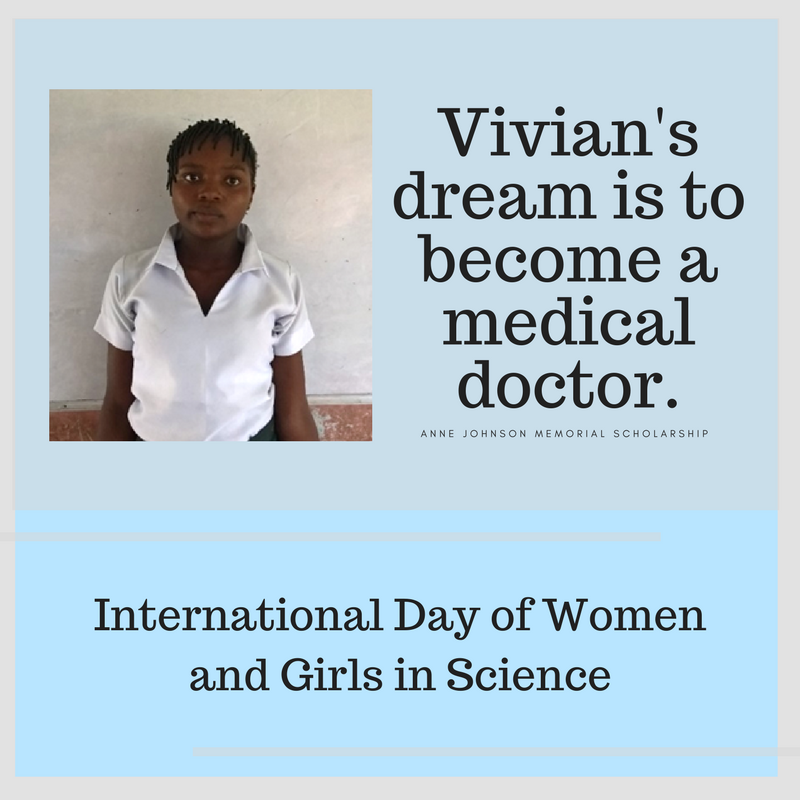
Vivian’s dream is to become a medical doctor in the future and is studying very hard to achieve that dream. In Vivian’s words, “I like the Anne Johnson Memorial Scholarship because in the past, I was always unable to pay my school fees regularly, but now, I pay my fees on time….. the burden and stress on my parents has also reduced and I have the privilege of attending one of the best schools in Delta State. So I am happy about the scholarship.”
These scholarships further help ensure that young girls can finish and pursue a higher education, a task that may have been financially impossible if not for the scholarships. Women and girls having access to higher education and roles in science help bring about some of the greatest minds, that without, possibly many innovative, and lifesaving inventions and ideas would not be exist. Donate today and become a monthly donor to support PfD’s mission to improve access to education to girls like Vivian.
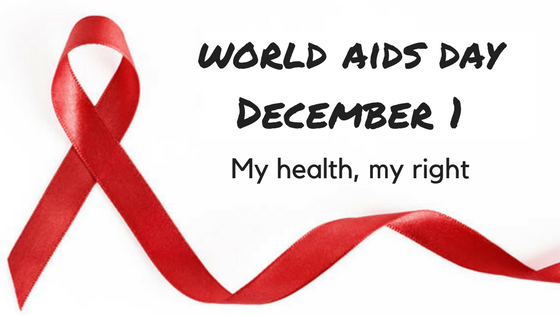
Today is World AIDS day and this year’s UN theme is “My health, my right”. This theme focuses on the right to health and access to health care. From the UN’s World AIDS day website, “Everyone, regardless of who they are or where they live, has a right to health, which is also dependent on adequate sanitation and housing, nutritious food, healthy working conditions and access to justice.” World AIDS day dates back to 1999 with the purpose of raising awareness, commemorating those who have passed on, and celebrating victories.
According to a new report from UNAIDS, access to HIV treatment has been greatly expanded. Only 685,000 people living with HIV had access to antiretroviral treatment in 2000. By June 2017 that number had risen to 20.9 million people. In 2000 there were approximately 40 million people with HIV/AIDS worldwide, that number dropped to 36.7 million by the end of 2016.
From 2008 to 2013 PfD implemented the Counseling, Care and Antiretroviral Mentoring Project (CAMP) in Nigeria, a program within the United States President’s Emergency Plan for AIDS Relief (PEPFAR). Nigeria has the second highest population of people living with HIV/AIDS in Africa. The primary goal of CAMP was to provide a comprehensive package of care for people living with HIV/AIDS with a focus on care for orphans and vulnerable children, the prevention of mother-to-child transmission, HIV counseling and testing, and antiretorviral treatment.
CAMP was implemented in four states in Nigeria: Akwa Ibom, Bauchi, Benue, and Delta. Some of the activities that PfD implemented in partnership with local entities were increased HIV testing, increased number of laboratories for testing, and recruitment of infected into treatment programs. Two of PfD’s most important contributions were building the capacity of local institutions to carry out prevention and treatment programs and raising the awareness of effected populations of their prevention and treatment options.
What can you do to help?
There are a number of ways to support the increase in access to treatment and the fight against the spread of HIV/AIDS. You could write letters in support of the PEPFAR program to your representatives. You can share news about HIV/AIDS (like this blog post!) with your social network to raise awareness. You could get active with a local HIV/AIDS treatment and prevention organization.
Sources:
UN page for World AIDS Day


To educate a girl child is to invest in a better tomorrow. The evidence is clear- investing in girls’ education results in strong economies as well as healthy and stable communities. However, the UNESCO Institute for Statistics (UIS) asserts that girls have a higher chance than boys of never setting foot in a classroom. Girls continue to face indomitable challenges, which pose a significant barrier to their education; therefore, Partners for Development (PfD) has initiated a campaign to educate and empower girls.
PfD’s Anne Johnson Memorial Scholarship Fund (AJMSF), named for our late colleague Anne Johnson, aims to support the education of girls in Nigeria, where there are gender disparities in education. Boys attend secondary school at a rate that is 10% higher than girls. The literacy rate among the 15-24 age group is 76% for males and only 58% for females (UNICEF, 2013). These disparities continue to grow in the poorer northern region, where girls are forced to work rather than continue beyond primary school.
The AJMSF provides support to girls, in the form of tuition and books, to support them through Junior Secondary School thus increasing the retention of girls in secondary schools in Nigeria. The majority of donations come from individuals, and it is through their generosity that we are able to cover 40-50% of each girl’s total annual school fees, insuring the sustainability of the fund. Since its inception in the 2014/2015 academic year, the AJMSF has supported the education of 48 Nigerian girls! PfD is immensely grateful for the generous donations, which have enabled us to empower these future leaders.
 Evelyn Ivie Igbalagh (pictured to the left), age 18, is the second of five children of Mr. and Mrs. Igbalagh. Her parents are peasant farmers living in a rural community, Ehor, in Edo State in southwestern Nigeria. Income from the family’s small farm makes it very difficult to afford school fees for Ivie and her four siblings (while public school theoretically should be free in reality parents are expected to contribute for school supplies, teacher compensation, and school lunches). At times, Ivie has been forced into street hawking to supplement her family’s income, a situation that can expose her to emotional and physical abuse. Ivie’s parents made the difficult choice of sending her to live with relatives in Benin City, capital of Edo State. In exchange for work that Ivie does at the relatives’ home they help cover some of her school costs.
Evelyn Ivie Igbalagh (pictured to the left), age 18, is the second of five children of Mr. and Mrs. Igbalagh. Her parents are peasant farmers living in a rural community, Ehor, in Edo State in southwestern Nigeria. Income from the family’s small farm makes it very difficult to afford school fees for Ivie and her four siblings (while public school theoretically should be free in reality parents are expected to contribute for school supplies, teacher compensation, and school lunches). At times, Ivie has been forced into street hawking to supplement her family’s income, a situation that can expose her to emotional and physical abuse. Ivie’s parents made the difficult choice of sending her to live with relatives in Benin City, capital of Edo State. In exchange for work that Ivie does at the relatives’ home they help cover some of her school costs.
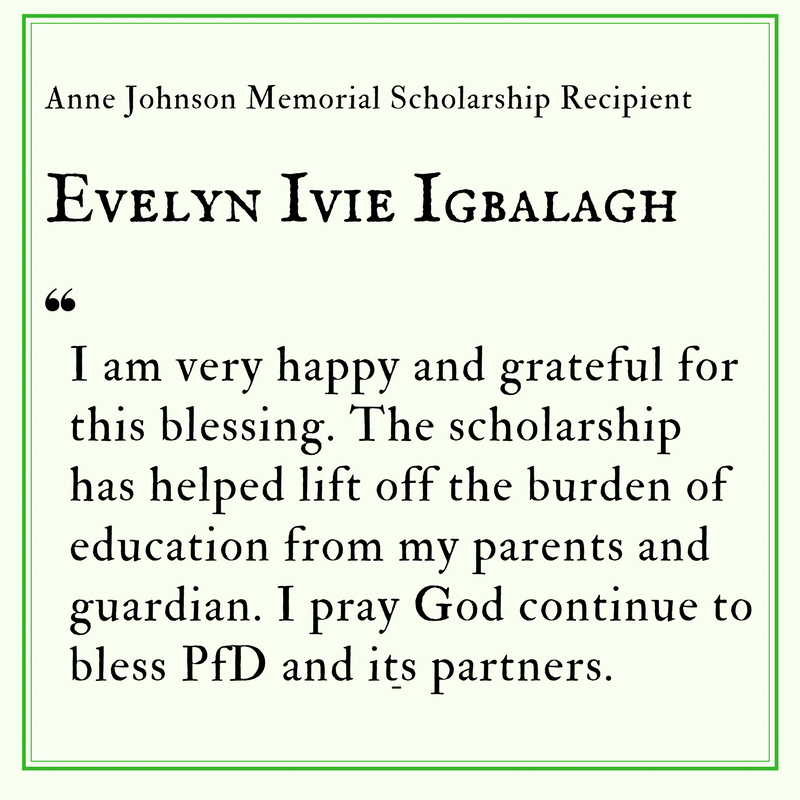 The relocation and level of poverty in her own family has slowed Ivie’s progression through the grades of secondary school. At age 18 she is several years older than most of her classmates because of her poor family status that is unable to pay for her education) at Uselu Junior Secondary School, Uselu, Benin City, Edo State where she is in her final year. Ivie is one of the Anne Johnson Memorial Scholarship recipients. She attends a mixed secondary school of about 3,000 students. Her favorite subject is Business Studies and she enjoys reading. Despite the many challenges she has faced Ivie is determined to move on to Senior Secondary School and complete the three years at that higher level. Learn more about the impact of the AJMS and read other success stories in the recent report.
The relocation and level of poverty in her own family has slowed Ivie’s progression through the grades of secondary school. At age 18 she is several years older than most of her classmates because of her poor family status that is unable to pay for her education) at Uselu Junior Secondary School, Uselu, Benin City, Edo State where she is in her final year. Ivie is one of the Anne Johnson Memorial Scholarship recipients. She attends a mixed secondary school of about 3,000 students. Her favorite subject is Business Studies and she enjoys reading. Despite the many challenges she has faced Ivie is determined to move on to Senior Secondary School and complete the three years at that higher level. Learn more about the impact of the AJMS and read other success stories in the recent report.
With the 2017/2018 Nigerian academic year commencing this October, consider making a donation to the AJMSF fund. Give the gift of a brighter future to girls like Ivie.

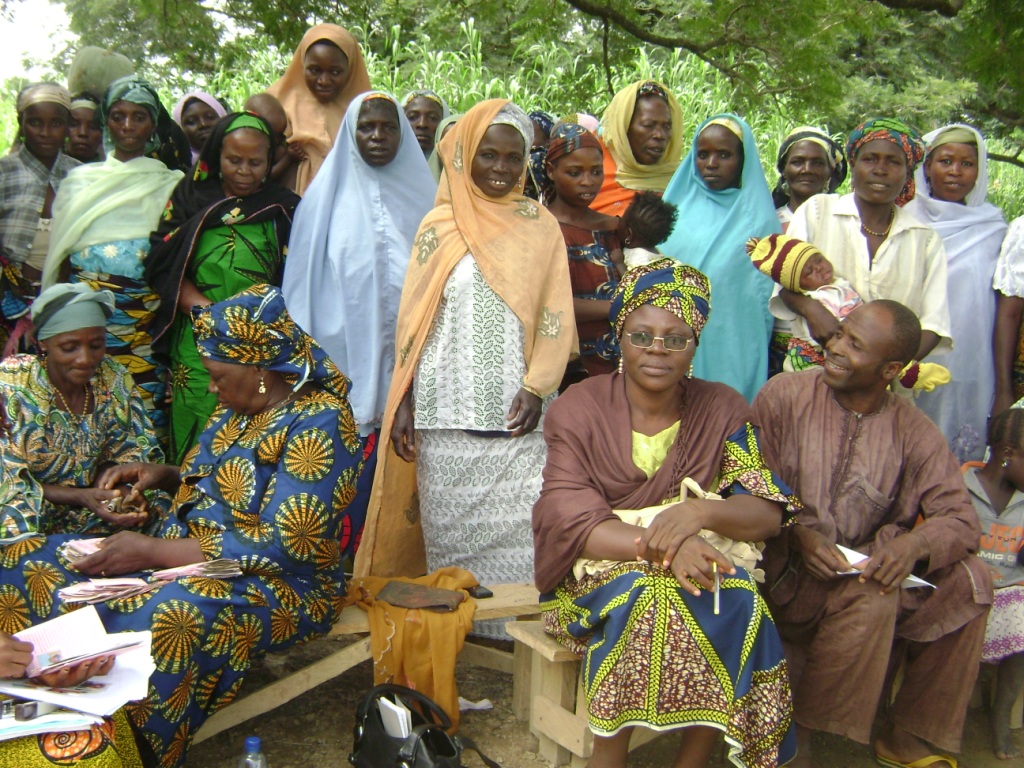
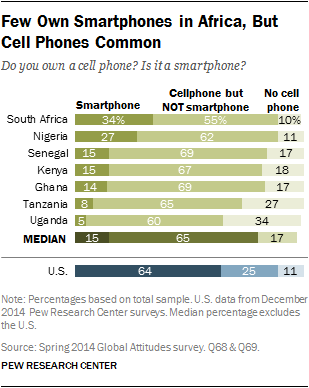
The increasing proliferation of cellphones in Africa brings an opportunity to leap-frog off technological development to innovative mobile interventions. Our case study takes place in Nigeria, with a cellphone proliferation rate of 89%. MHealth is an innovative approach towards the integration of technology and health interventions. However, mHealth is limited for those without cell phone access; generally the most vulnerable like women in rural communities or the illiterate (40.4% of the population over the age of 15 cannot read and write in Nigeria[1]). Therefore, Partners for Development and Dr. Valerie L. Flax, with her team of researchers from the University of North Carolina, provided groups of women with cellphones to research their effectiveness in disseminating and encouraging vulnerable populations to adhere to recommended health practices.
The researchers targeted women-microcredit clients. These women had received small loans and were already integrated into a group dynamic with other microcredit clients where peer support and accountability was highly valued for microfinance program success. PfD’s intervention utilized the pre-existing small groups of women-microcredit clients for the purpose of our health promotion program; by linking social networks together with health information via text and voice messaging we are able to encourage communication and behavior change. The research found that integrating group counseling and cell phone messaging increased the likelihood of women to adhere to breastfeeding recommendations.
Dr. Flax performed a second round of research to analyze the feasibility and acceptability of group cellphones used to promote optimal breastfeeding practices for women’s microcredit groups within Nigeria. During this research, in each microcredit group, one woman was provided a low-cost cell-phone that received text/voice messages weekly on breastfeeding information. The woman responsible for the cell phone was asked to disseminate the information to her group within a week
Key findings from the target group (195 microcredit clients whose babies were born during intervention) include:
- 68% of the time, breastfeeding messages were usually shared in the small groups rather than individually
- 44% of groups met at least once a week to discuss the breastfeeding messages
- 59% of the small groups performed songs and dramas about the breastfeeding messages every week
- 58% of women trusted the messages and were motivated to try recommended practices
- 64% said the group phone worked well or very well
- 35% felt they had the support to carry out the breastfeeding recommendations
With regards to the feasibility and acceptability of providing a single cell phone to a group, focus group discussions showed unanimous neutral or positive feelings towards the single cell phone holder. Reports also show the information was shared promptly. Moreover, women continued to share what they learned about breastfeeding to their family and friends. In congruence with prior research, women in the target group who met at least once a week were more likely to exclusive breastfeed in comparison to women who never met with their group. As we can see, utilizing mobile health promotion in a group setting is a feasible, acceptable and worthwhile approach.
In conclusion, despite Nigeria’s high cellphone penetration rate, women tend to have less access to cellphones and thereby mobile health promotion technology. Therefore, this tactic of targeting women who already have group dynamics formed within their microcredit program was effective in promoting optimal breastfeeding practices through the use of a group cell phone. This research is groundbreaking in exemplifying the feasibility of integrating mobile health technology into groups of the most vulnerable peoples.
At PfD, we are dedicated to delivering local solutions with sustainable outcomes. As seen in this exemplified program, women and children are at the forefront of our programming. Learn more about PfD’s work promoting lifesaving and cost-effective recommended maternal health practices in our blog, https://pfd.org/building-on-the-microcredit-platform-for-better-child-health/. And read more about our work in Nigeria with maternal health here https://pfd.org/the-question-of-quality-comprehensive-respectful-and-rights-based-maternal-health/
Flax V.L., Negerie M., Ibrahim A.U., Leatherman S., Daza E.J. & Bentley M.E. (2014) Integrating group counseling, cell phone messaging, and participant-generated songs and dramas into a microcredit program increases Nigerian women’s adherence to international breastfeeding recommendations. The Journal of Nutrition 144, 1120-1124
[1] https://www.cia.gov/library/publications/the-world-factbook/fields/2103.html
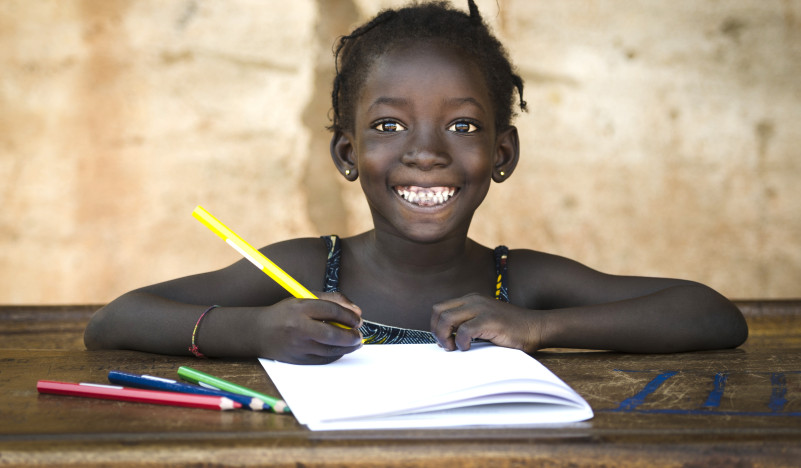
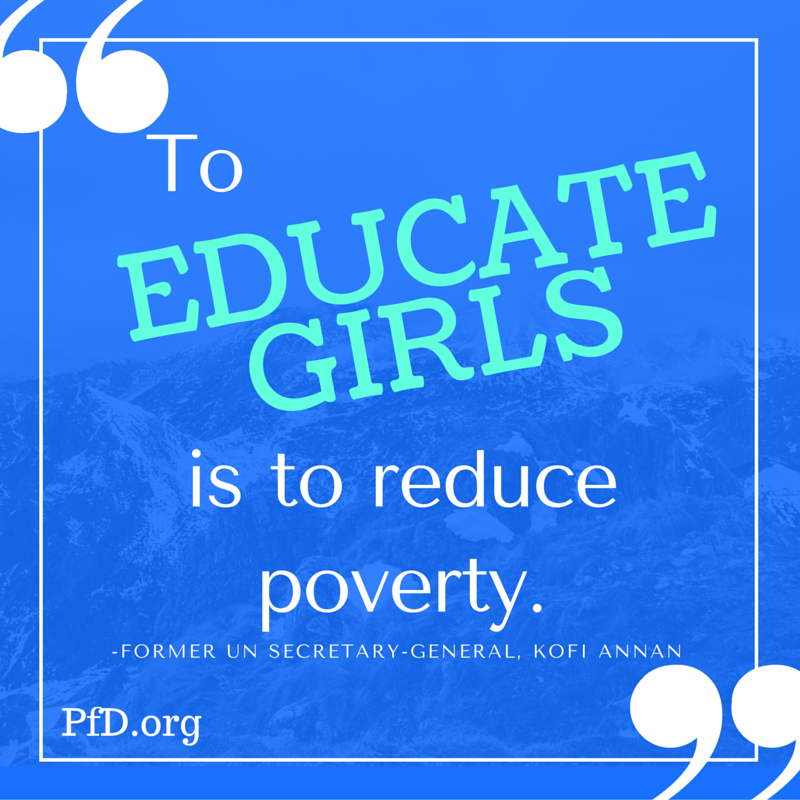
The current literacy rate for females in Nigeria is approximately 20% lower than it is for males1. Girls also spend an average of eight years in school throughout their lifetime in comparison to girls in the United States whom spend an average of 17 years. With secondary education in Nigeria costing around $500.00 annually, many young girls are unable to advance beyond elementary education without additional support. 70% of Nigerians1 also live below the poverty line and it may be quite difficult to use excess funds towards furthering their child’s education. With the help of your donation to the Scholarship Fund, PfD can significantly reduce the financial strain on families in order to continue to pay for education for their children.
Meet Lucy, one of the newest recipients of the Anne Johnson Memorial Scholarship Fund. Lucy is 12 years old, the second of three children and ranks at the top of her class. Lucy aspires to educate other young children one day by becoming a Mathematics lecturer after her studies. She is currently studying twelve subjects and loves learning at school, reading, and mathematics. All of Lucy’s textbooks for her numerous classes were provided by the Anne Johnson Memorial Scholarship Fund (AJMSF). Lucy’s dreams are much more of a reality with the help of AJMSF. Lucy’s mother, Mrs. Ifeoma, was so grateful to PfD for giving her daughter the opportunity to help further her education and promised to continue to encourage her daughter to do well in her studies and stay in school.
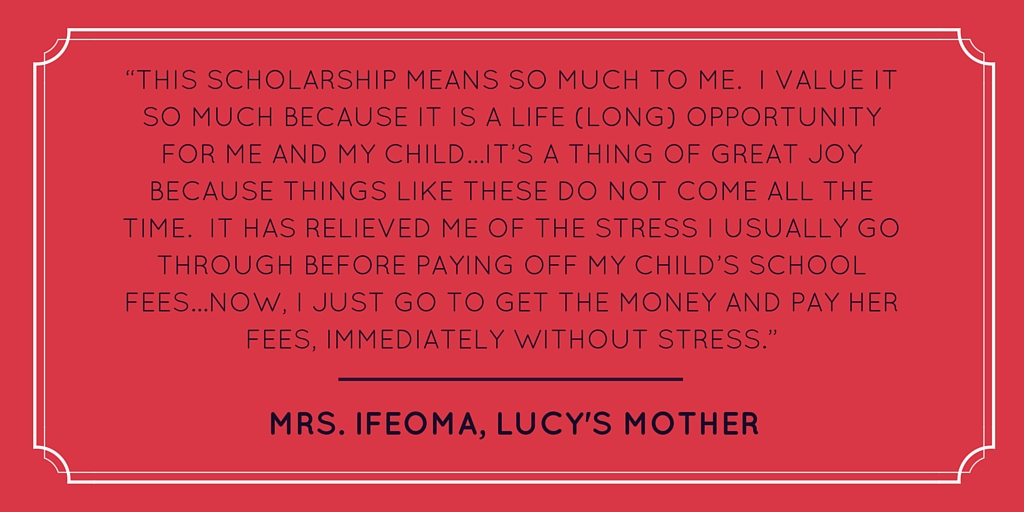
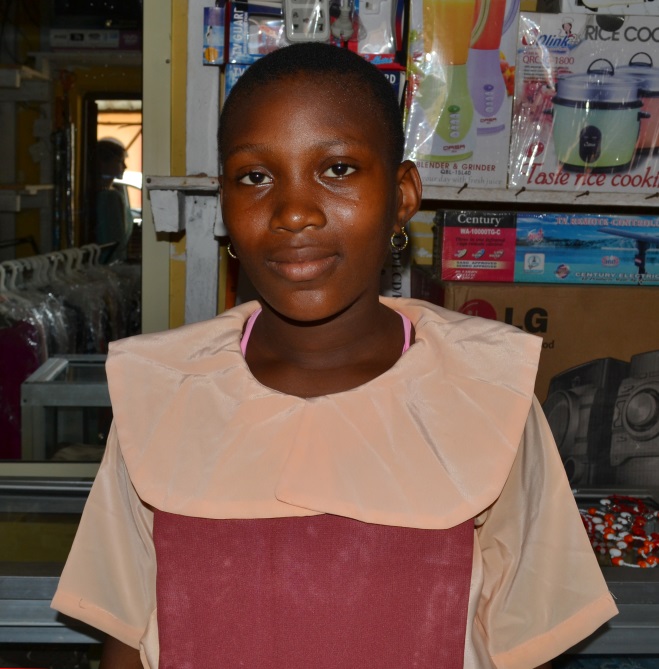 The Scholarship Fund that Lucy received was created in memorial of Anne Johnson, former PfD Country Program Director. Initially PfD, in partnership with Life Above Poverty Organization (LAPO), set a target of $20,000.00 annually to support the Scholarship endowment. However, in August 2015, less than one year after the AJMSF began, friends, family members and three institutions donated close to $30,000 in her memorial.
The Scholarship Fund that Lucy received was created in memorial of Anne Johnson, former PfD Country Program Director. Initially PfD, in partnership with Life Above Poverty Organization (LAPO), set a target of $20,000.00 annually to support the Scholarship endowment. However, in August 2015, less than one year after the AJMSF began, friends, family members and three institutions donated close to $30,000 in her memorial.
Since 2014, 26 Nigerian girls have been awarded scholarships from the AJSMF to support their secondary education. Each year, drawings are held to decide on the winners because there were so many girls who qualify for scholarships based on economic need. Staff members from LAPO and PfD meet with the winners a few times a year to track their successes in school since receiving the scholarship fund. Past AJMSF recipients have graduated from secondary school and will continue to receive support from PfD to further their education.
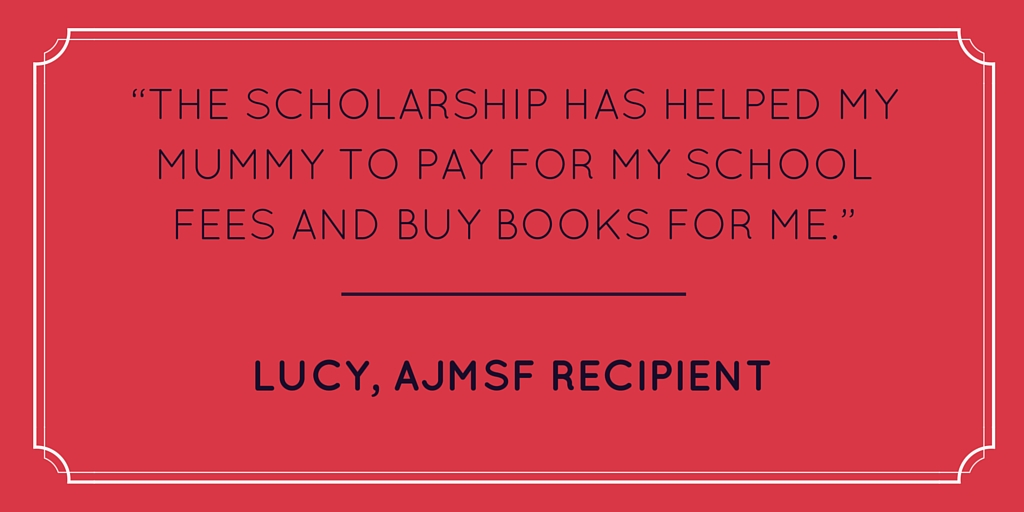 In the future, PfD and LAPO plan to give other young girls like Lucy the opportunity to help pay for secondary school and achieve their educational aspirations. To support more girls like Lucy donate $250 to the Scholarship Fund today.
In the future, PfD and LAPO plan to give other young girls like Lucy the opportunity to help pay for secondary school and achieve their educational aspirations. To support more girls like Lucy donate $250 to the Scholarship Fund today.
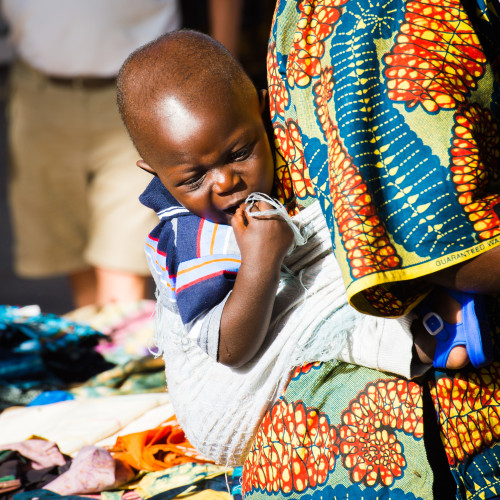
The Question of Quality: Comprehensive, Respectful, and Rights-Based Maternal Health
Imagine that you’re a young, pregnant woman. Imagine that you have to walk five miles to even get to the doctor. You arrive at the clinic, only to sit in a small, hot, overcrowded waiting room for four or more hours. When you finally do get to see a nurse, she mocks your accent, or your clothes. She scolds you for not coming in sooner, and makes you feel ashamed. Your understanding was that it was a free exam, but then you are asked to go to the pharmacy to buy gloves for the nurse. The nurse pricks your finger and says she’s testing you for a disease. You think you’ve heard of this disease, and you heard it kills people. You’re scared of it, but she doesn’t say more – doesn’t say if she thinks you might have it or if it will hurt your baby. You’re given a confusing mix of pills that are bitter tasting, and told that the clinic is out of some. The nurse says you should come back next week to get these, and that you should come back for another exam in 2 months.
Would you return to the health facility?
For many women in the developing world, this example closely resembles their experience. Each year, over 300,000 women die in pregnancy and childbirth, 99 percent of them in the developing world. For every woman who dies of pregnancy-related complications, 20 to 30 more suffer from related on-going conditions which may permanently affect their normal functioning –additional 6 to 9 million women per year. Maternal health advocates, researchers, and providers are committed to ending human rights abuses and promoting skilled and dignified care. Together, we can make comprehensive, respectful, and rights-based maternal health care available to all.
Maternal mortality and morbidity are the tragic result of a myriad of compounding factors. 75% of maternal deaths are caused by severe bleeding, infections, high blood pressure during pregnancy, complications from delivery, and unsafe abortion. Other deaths are often caused by or associated with other diseases such as malaria or AIDS. Delivering at a medical facility with a skilled health care worker present is critical should these complications arise, but often they can be avoided altogether if a woman attends antenatal care visits. However, only 40% of women in low-income countries complete the recommended number of antenatal care visits.
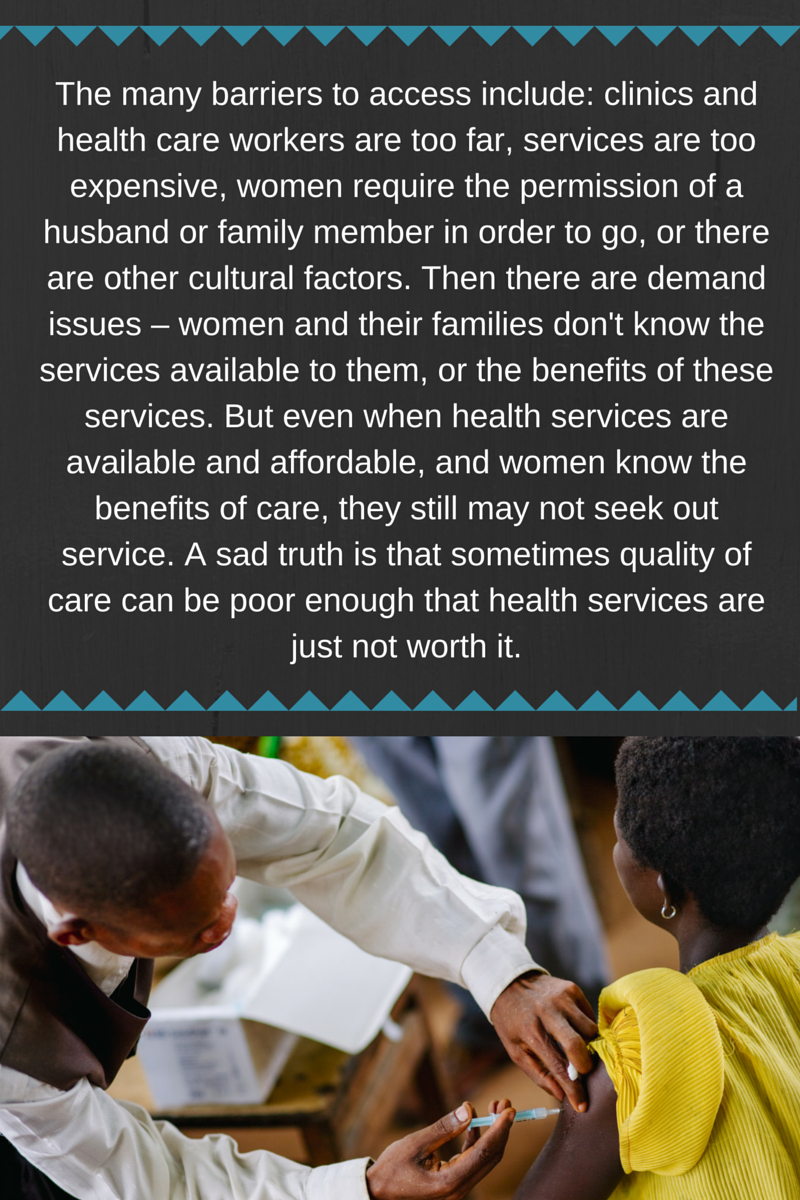
As the example above illustrates, accessing care for some women can not only be difficult, it can be intimidating, humiliating, and scary. Unsurprisingly, receiving poor care makes women less likely seek health care out in the future. This is why it’s crucial to not only provide access (by making healthcare close and affordable), to educate women, their families, and their communities about the importance of maternal health care, but also to work with health clinics and health workers to ensure quality of care – the respectful, comprehensive, and competent care that every human deserves.
At PfD, we deliver integrated programs that address the nuanced reality on the ground. In Nigeria, we not only provide education to women, their families, and communities and engage with key community leaders to change behavior. We also work with health care providers to ensure that they have the knowledge and resources to provide quality care. PfD worked to deliver improved maternal, newborn, and child health services through the training and mentoring of health care personnel, including nurses and midwives, community health extension workers, and community based healthcare volunteers. PfD trained nurses and midwives on quality of care and trained health care workers on Balanced Counseling Strategy which improves client-provider interactions and client satisfaction. The results of this project speak for themselves – In the first year of the project, 15,562 women attended at least one session of antenatal care during pregnancy – by the end of the project over 44,000 did. This represents an increase of over 280%.
Through the Scale-up of Prevention of Mother-to-Child Transmission and Pediatric HIV/AIDS services in Delta State, Nigeria, PfD built the capacity of health facilities, training health workers to provide quality HIV testing and counseling, integrating Prevention of Mother-to-Child Transmission and HIV care into antenatal care services, and upgrading and equipping a laboratory to service as a comprehensive treatment hub. PfD trained health care workers and pregnant women received HIV testing and counseling. PfD also facilitated testing of pregnant women for HIV.
PfD is committed to the idea that no woman should be in danger because she gives birth, which is why we’re joining the global community in calling on the UN Secretary General to recognize April 11th as the International Day for Maternal Health and Rights. Together with the UN community we can make comprehensive, respectful, and rights-based maternal health care available to all. To sign the petition,click here. Follow the discussion at #IntlMHDay and through PfD’s social media updates. To learn more about our work to promote maternal health and healthy communities, click here.
April 6th, 2016, by Katie Baczewski, PfD Program Officer
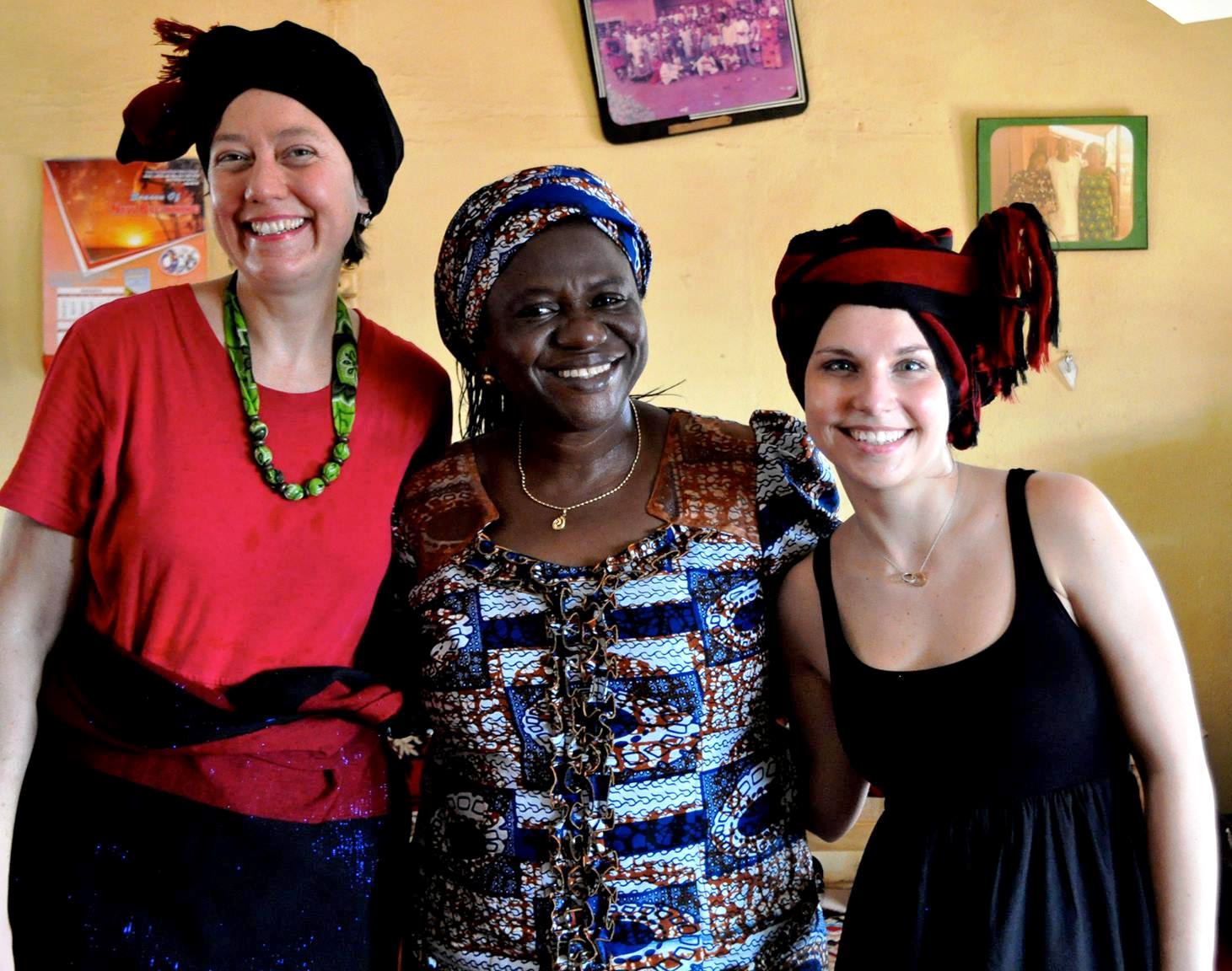
As a young Program Officer working in the Partners for Development (PfD) headquarters, I still remember the first time I met Anne Johnson, PfD’s Nigeria Country Program Director at the time. Although she barely knew me, Anne had such warmth about her she instantly made me feel like we were old friends. Anne had the rare ability to make others feel comfortable in their own skin. Her overflowing positive energy was infectious. Anne was able to bring out the best in you.
 Anne was passionate about many subjects, including girls’ education in Nigeria; hence PfD’s efforts to honor her memory through the Anne Johnson Memorial Scholarship Fund. Numerous studies have demonstrated the relationship in developing nations between education and social and economic well-being: females with a secondary education have lower fertility levels which in turn translates to better physical and economic health for them and their families. “Educating girls can transform whole communities” (Earth Policy Institute, 2011).
Anne was passionate about many subjects, including girls’ education in Nigeria; hence PfD’s efforts to honor her memory through the Anne Johnson Memorial Scholarship Fund. Numerous studies have demonstrated the relationship in developing nations between education and social and economic well-being: females with a secondary education have lower fertility levels which in turn translates to better physical and economic health for them and their families. “Educating girls can transform whole communities” (Earth Policy Institute, 2011).
To PfD Anne was a gifted Country Program Director, Director of Programs, consultant and driving force behind much of PfD’s amazing work. She had an unrivaled passion for the work PfD did and believed in each and every one of our programs. To me, Anne was a mentor, a friend, and an inspiration. Anne epitomizes the passion that drives PfD’s mission. Although Anne’s work with PfD was cut short by illness, her legacy lives on in the people she touched—from the hundreds of field staff, partners and PfD employees to the thousands of women, men and now young girls she helps achieve.
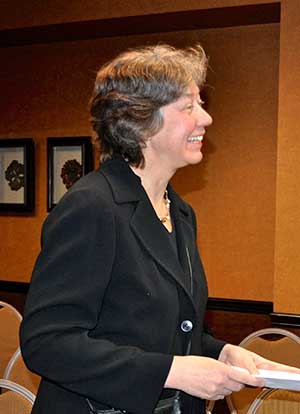 I still remember how confident she was that my background in journalism was just what her staff needed. Anne gave me my first chance to prove myself. She never stopped pushing me—or PfD. As frustrating and difficult as things got, Anne always had a positive spin on everything. Every conversation began and ended with laughter. Anne was one of the most genuine and loving people I have ever come across. In developing my management style, I aimed to emulate Anne’s effortless ability to take things in stride, find the humor in just about everything and believe in people. She was truly a remarkable person and PfD was lucky enough to have a 20-year relationship with Anne. Anne truly was PfD and because of Anne, I am proud to say that #IamPfD too.
I still remember how confident she was that my background in journalism was just what her staff needed. Anne gave me my first chance to prove myself. She never stopped pushing me—or PfD. As frustrating and difficult as things got, Anne always had a positive spin on everything. Every conversation began and ended with laughter. Anne was one of the most genuine and loving people I have ever come across. In developing my management style, I aimed to emulate Anne’s effortless ability to take things in stride, find the humor in just about everything and believe in people. She was truly a remarkable person and PfD was lucky enough to have a 20-year relationship with Anne. Anne truly was PfD and because of Anne, I am proud to say that #IamPfD too.
**Anne Johnson died on Christmas Eve 2013 after a lengthy battle with cancer. Anne’s commitment to PfD continues today in the form of her scholarship fund for young girls in Nigeria. Her full biography and obituary are available on the PfD website.**
Yoga Burn is a yoga based workout program that is specifically tailored to help women lose weight and shape up. Yoga Burn Reviewsis a complete 12 week program designed to help you tone and firm your body while losing weight and improving flexibility. Zoe Bray-Cotton is the creator behind
Throughout all of December we will be sharing stories from our staff, board, partners, and others from around the globe. We can’t wait to share all of the hopeful, engaging, and positive stories from our work. We will be using the hashtag #IamPfD on Facebook, Twitter and LinkedIn.

Be sure to share the posts that you find engaging and inspiring with friends and family and don’t forget to donate and take an #unselfie of you making a donation and share it with us and use the #IamPfD for a chance to win prizes from PfD.
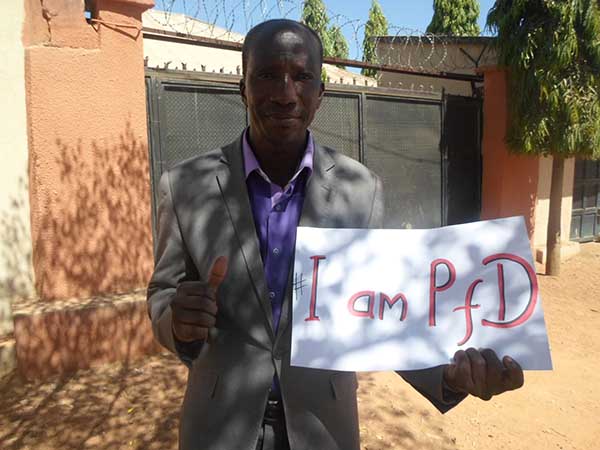
 PfD gives the greatest importance to the role of partners in every aspect of our work. We are deeply committed to involving local counterparts in assessing needs, designing programs, implementing activities and learning from the communities we jointly serve. PfD’s partner-oriented approach directs us to work with and harness the resources of the international community to meet the needs of vulnerable populations. Therefore, during our December campaign we wanted to feature one of our partners. Below is a Q&A with Pastor Ayuba Musa from Gerawa Women Multi-purpose Cooperative Society from Bauchi state, Nigeria.
PfD gives the greatest importance to the role of partners in every aspect of our work. We are deeply committed to involving local counterparts in assessing needs, designing programs, implementing activities and learning from the communities we jointly serve. PfD’s partner-oriented approach directs us to work with and harness the resources of the international community to meet the needs of vulnerable populations. Therefore, during our December campaign we wanted to feature one of our partners. Below is a Q&A with Pastor Ayuba Musa from Gerawa Women Multi-purpose Cooperative Society from Bauchi state, Nigeria.
Q: How did you first learn about PfD?
A: Gerawa Women Multi-purpose Cooperative Society is a community based rural micro-finance organization, base in Bauchi, Bauchi State of Nigeria. The organization got to know about Partners for Development in 2004. Prior to this time, Gerawa has been engaging in micro-credit program in the State at an elementary or infant stage. The institutional capacity of the organization to operate effectively and efficiently and the knowledge on micro-credit standard best practice was low. The capacity of the organization to access loan to finance its clients was low, with low portfolio strength of USD $15,000, out of which 80% of the loans were in arrears. It was at this stage that the organization team up with PfD.
Q: What led you to work with PfD?
A: Gerawa was so fascinated with PfD’s programs in Bauchi state which cut across (a) rural infrastructure development (b) small enterprise development i.e. micro-credit (c) health i.e. Reproductive health (d) and institutional capacity development/building. Taking the capacity challenge of the organization into consideration, Gerawa requested support with the micro-credit program in order to meet the need of our clients and reduce poverty level among the rural and vulnerable household women in the State.
Q: Tell us about the growth of your organization?
A: After over 10 years of good partnership with PfD, Gerawa has grown from lending USD $12,000 to $112,000 per year. Apart from micro-financing, the organization has equally benefited from the following PfD project activities:
Reproductive health training and support
- Integrated health and microfinance programming
- Expanded access to services for agricultural enterprise
- Business development skill training
- Nigeria Agricultural Enterprise Curriculum (NAEC) training and support
All these projects targeted rural women to improve their skills, increase sales and improved income. The uniqueness of implementing PfD project in the communities is integration approach to project delivery, which allows beneficiaries to access and enjoy more than one intervention at a time – holistic development.
Q: How has this partnership impacted your work?
A: The impact of the project implemented with PfD over years resulted in:
Improved Micro-finance: To date, we have issued over 3,200 microcredit loans mainly to women – 95% of borrowers are women.
Institutional capacity development of the organization: At the start of the project with PfD, an operational grant of over a million naira was received from PfD to complement staff salary and other administrative overheads. Likewise, trainings, seminars and workshops were organized by PfD to build the capacity of the implementing staff of the organization in project delivery and methodology so that we could sustain the work after the completion of the grant.
Supporting women farmers: We were able to strengthen the capacity of more than 2,000 small agricultural business holders, who were mainly women, to effectively plan, save, record, forecast, and negotiate properly for their products.
Successful program integration of health and microfinance: A total of 48 communities were reached and 2,747 women borrowers received health training and information, 11,420 immunization were given, 980 women of reproductive age received family planning commodities, 3,620 attended anti-natal care and 122 received various counseling on RH related issues.
Q: Any closing thoughts?
A: In conclusion, PfD has done great things in transforming the lives of ordinary people for the better, but there is still more to be done, thousands and millions of unreached ones are still plaguing in abject poverty and dying daily. PfD still needs more support to be able to continue doing the good work and be able to reach the less privileged.
Throughout all of December we will be sharing stories from our staff, board, partners, and others from around the globe. We can’t wait to share all of the hopeful, engaging, and positive stories from our work. We will be using the hashtag #IamPfD on Facebook, Twitter and LinkedIn.

Be sure to share the posts that you find engaging and inspiring with friends and family and don’t forget to donate and take an #unselfie of you making a donation and share it with us and use the #IamPfD for a chance to win prizes from PfD.


